In language learning, memorizing and reviewing phrases is one effective method. However, many of us struggle to keep up with consistent review, or get tired of repetitive memorization. Tools like Anki are well-known, but in my case, I get bored and quit within a month, no matter how many times I try.
Apps like Duolingo make repetition more fun, but it’s often hard to tailor them to the exact phrases or expressions you want to learn.
In this article, I introduce a method that combines Claude MCP with a CSV or SQL-based phrase database. The goal is to externalize your learned language knowledge and use it more naturally and flexibly.
- What is Claude MCP?
- SQL or CSV Database — Both Supported!
- What is SQL?
- CSV/SQL Database vs ChatGPT File Upload
- Practical Example 1: Recalling Useful Phrases
- Practical Example 2: Review Recent Phrases
- Practical Example 3: Practice Conversations with Stored Phrases
- Practical Example 4: Expanding with Similar Phrases
- Practical Example 5 (for SQL): Auto Tagging Phrases
- Conclusion: How Externalization Transforms Language Learning
- Reference Links
What is Claude MCP?
Claude MCP (Model Context Protocol) is a protocol developed by Anthropic that allows Claude AI to interact with external systems. It’s often compared to USB-C for AI. With MCP, Claude can go beyond its internal knowledge and directly access external resources like databases and file systems. It’s now also used by OpenAI, Gemini, and other LLMs, and expected to expand further.
Key features:
Scalability: Connects to various external systems
Real-time Processing: Enables real-time reading/writing to databases
Customizability: Can be tailored to user-specific needs
Security: Can be safely used in local environments with proper restrictions
For language learning, MCP allows integration with your vocabulary progress data, enabling personalized learning experiences.
Full usage is too broad to cover here, so please check the official Claude guide linked at the end.
SQL or CSV Database — Both Supported!
There are many types of MCP servers.
Depending on the source file and instructions you need, you should select the appropriate MCP.
While many MCPs are available on GitHub, for security reasons it's safest to read the source code or use trusted ones with a wide user base.
Here are examples of MCPs useful for managing CSV or SQL language databases:
Server Postgres (for SQL)
Use Case: Managing structured vocabulary/phrase databases
Strengths: Flexible data querying with complex conditions
Example Uses: Tracking study history, progress, and related phrase searches
npx -y @modelcontextprotocol/server-postgres postgresql://yourusername:yourpassword@localhost:5432/yourdbname
File System MCP (for CSV)
Use Case: Handling general local files
Strengths: Works with media files like audio or images
Example Uses: Organizing study materials
npx -y @modelcontextprotocol/server-filesystem yourprojectdirectory
By combining these MCPs, you can build a comprehensive language study support system.
You also need to set the Claude config JSON like this:
"postgres": {
"command": "npx",
"args": ["-y", "@modelcontextprotocol/server-postgres", "postgresql://yourusername:yourpassword@localhost:5432/dbname"]
},
"file-system": {
"command": "npx",
"args": ["-y", "@modelcontextprotocol/server-filesystem", "yourprojectdirectory"]
}
Replace placeholders like yourusername and dbname with your own settings.
What is SQL?
For those unfamiliar: SQL (Structured Query Language) is the standard language for manipulating databases. Using SQL in language learning lets you manage large-scale learning data more efficiently than CSV.
Benefits of Using SQL
Flexible Search/Filtering: You can easily search with conditions like “phrases studied in the last week” or “low success rate items.”
Progress Visualization: Allows simple statistical analysis of your learning data.
Error Prevention: Prevents duplication or missing values more robustly than CSV.
Although GUI input is less user-friendly than CSV, if you’re comfortable with CLI, SQL offers greater power.
Note: The examples below work for both CSV and SQL. Choose based on your technical comfort level.
CSV/SQL Database vs ChatGPT File Upload
You can also upload files to ChatGPT or Claude Web for learning support. But this comes with drawbacks:
File Upload Issues:
You must upload the file every session
Re-upload needed after session ends or file updates
Managing multiple files becomes a hassle
MCP Advantages:
Real-time database updates
Persistent data across sessions
Instant reflection of edits or additions
Complex queries possible
Once configured, MCP enables smooth, continuous learning, minimizing friction—the biggest enemy of language learning.
Basic Table Design Example
-- Phrase Table
CREATE TABLE phrases (
id INTEGER PRIMARY KEY,
original_text TEXT,
translation TEXT,
category TEXT,
difficulty_level INTEGER,
created_date DATE
);
-- Learning History Table
CREATE TABLE learning_history (
id INTEGER PRIMARY KEY,
phrase_id INTEGER,
practice_date DATE,
correct_count INTEGER,
total_attempts INTEGER,
FOREIGN KEY (phrase_id) REFERENCES phrases(id)
);
The following section introduces practical examples for learning French as a beginner.
Practical Example 1: Recalling Useful Phrases
Without LLMs, if you stored a bunch of phrases, finding the right one later was tedious unless you organized them perfectly.
With LLMs, you can retrieve relevant phrases with vague or high-level queries.
Example: “Show me phrases useful for explaining graph changes in a presentation.”
Claude instantly finds relevant phrases. This is great when you want to quickly review what you need in real scenarios.
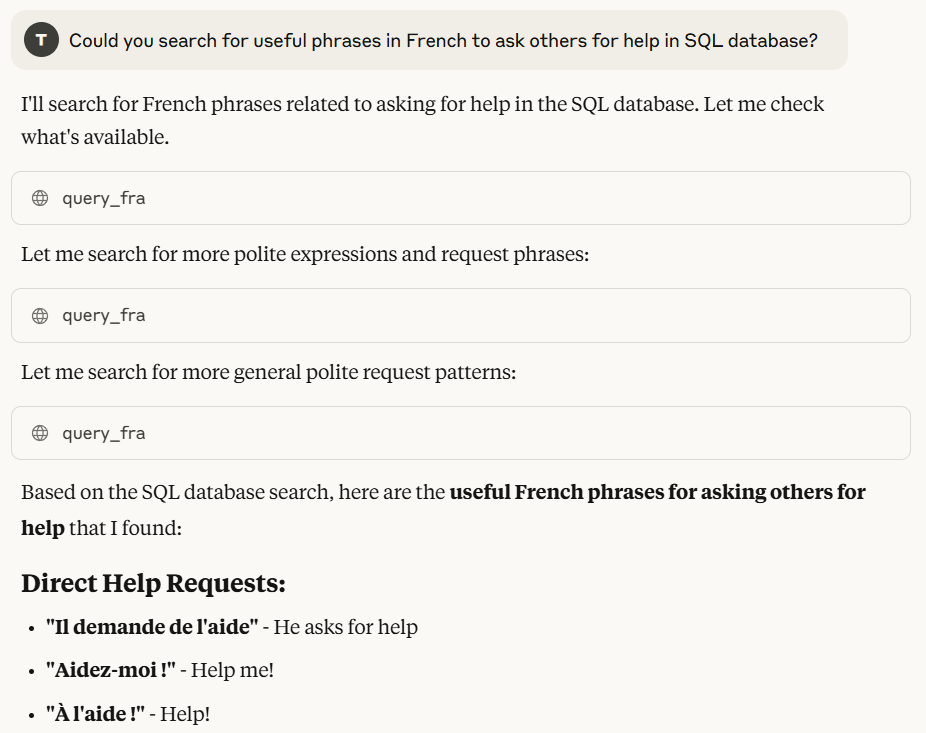
You can even analyze which phrases appear most often statistically.
Here is an example of statistical analysis. The pie chart illustrates my monthly learning trends, which have been increasing recently.

Practical Example 2: Review Recent Phrases
Frequent review is crucial.
With MCP, you can just ask in natural language to practice your recently learned phrases through translation, fill-in-the-blanks, or multiple choice.
This helps turn passive memorization into active recall, which enhances long-term retention.
Claude can even customize reviews to focus on your recent mistakes or generate variations.
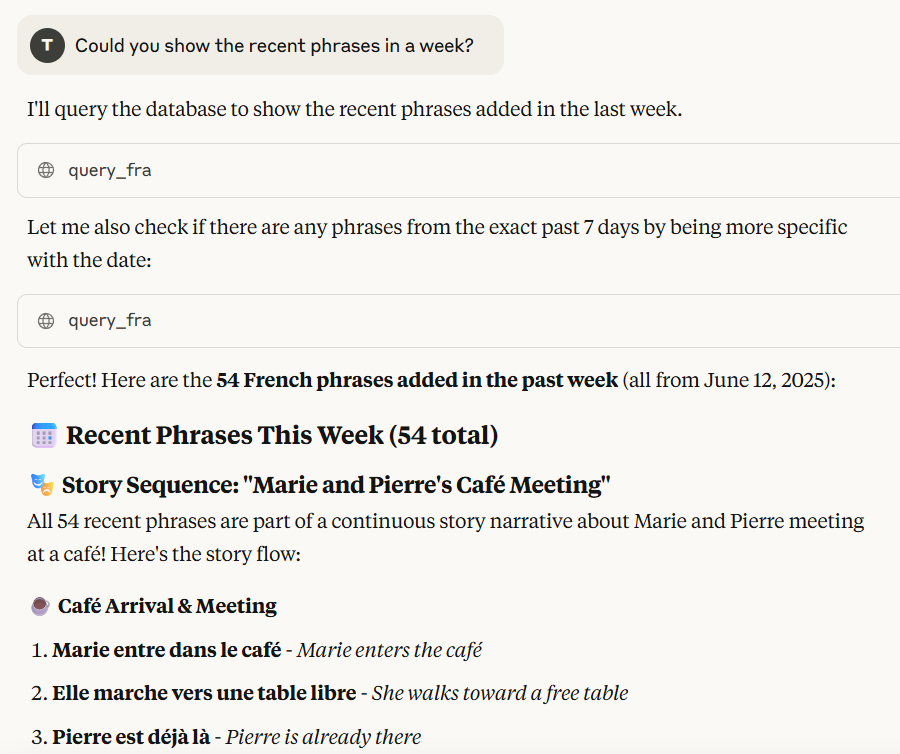
Practical Example 3: Practice Conversations with Stored Phrases
To build real-life conversational skill, practice using phrases in context.
Conversation Practice Features:
Situation-based Practice: Use category data to generate scenarios like ordering at a restaurant, giving directions, research presentations, etc.
Difficulty Scaling: Phrase complexity adjusts based on your level.
Real-Time Feedback: Claude can give grammar and fluency feedback.
You can try both multiple-choice and open-ended questions.
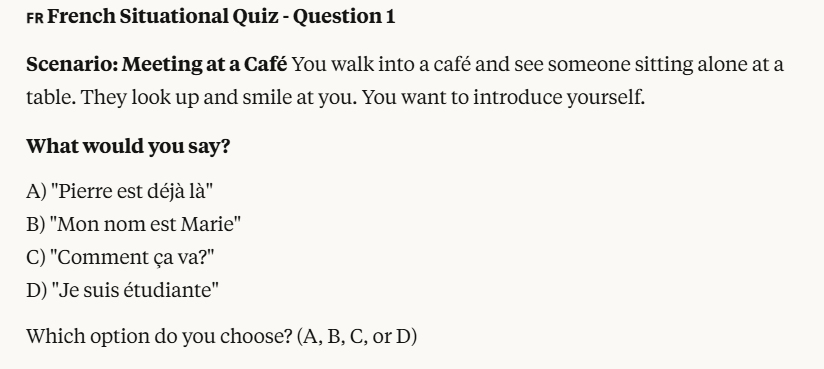

Everytime Claude gives a nice feedback.
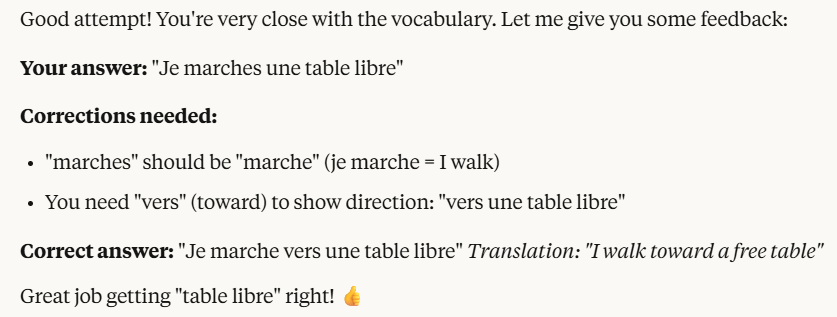
Practical Example 4: Expanding with Similar Phrases
To expand vocabulary efficiently, build on what you know.
Claude can:
Analyze Semantic Similarity: Suggest similar expressions used in the same context
Expand Grammar Patterns: Show how to evolve basic expressions into advanced ones
Level-Adapted Suggestions: Adjust difficulty to your learning stage
You can use prompts like “Give me variations of these phrases” to expand your study list.

Practical Example 5 (for SQL): Auto Tagging Phrases
Organizing phrases with tags helps review, but manual tagging is tedious.
Claude can help automate this:
Semantic Analysis: Suggest tags based on phrase meaning
Usage Frequency: Tag important items based on learning history
Clustering: Group similar phrases automatically
Example tags:
By function: greeting, request, opinion
By context: business, casual, formal
By level: beginner, intermediate, advanced
Here is a real example for my database.
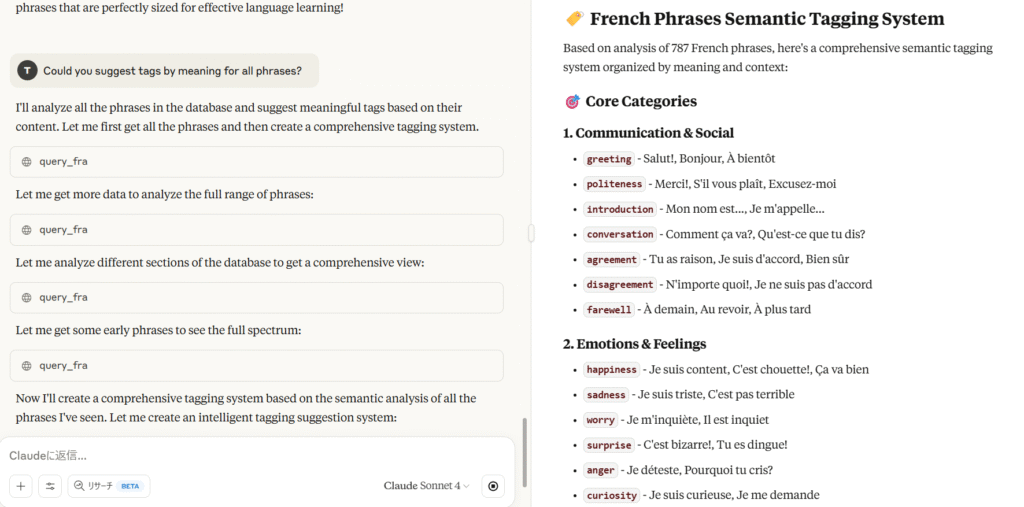
You can't directly change tags with CSV, but with SQL Claude can generate prompt-ready commands.
Conclusion: How Externalization Transforms Language Learning
This Claude MCP + database approach allows you to externalize your second language knowledge and work flexibly with AI.
Benefits of Externalization
Free from Repetitive Memorization
Instead of "memorize, forget, repeat," you can focus on applying knowledge in real contexts.
Even if you forget, you can retrieve relevant past data with just a hint or situation description. So nothing is wasted.
Visualize Your Learning History
With correct/incorrect data, you can clearly see your progress and weak points. You no longer have to guess where you stand.
Reuse and Expand Knowledge
Stored phrases become raw material for new expressions. Claude helps create new expressions or variations based on existing data.
A New Paradigm in Language Learning
Old: "Memorize → Use → Forget → Repeat"
New: "Accumulate → Externalize → Collaborate with AI → Apply and Evolve"
This system helps shift your focus from memory to creative application.
In my case, I also use Google Text-to-Speech to create audio from this database and passively listen daily.
This is just one example—I hope researchers and self-learners try and find what works best for them.
Reference Links
PostgreSQL MCP Server
File System MCP
Related Resources

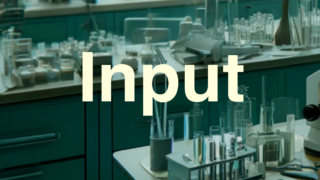
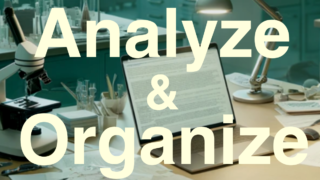
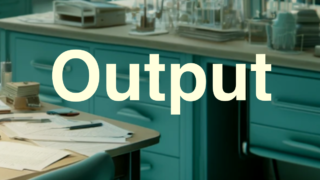
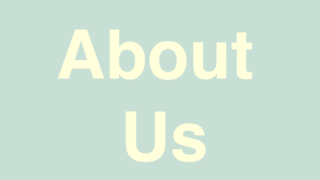
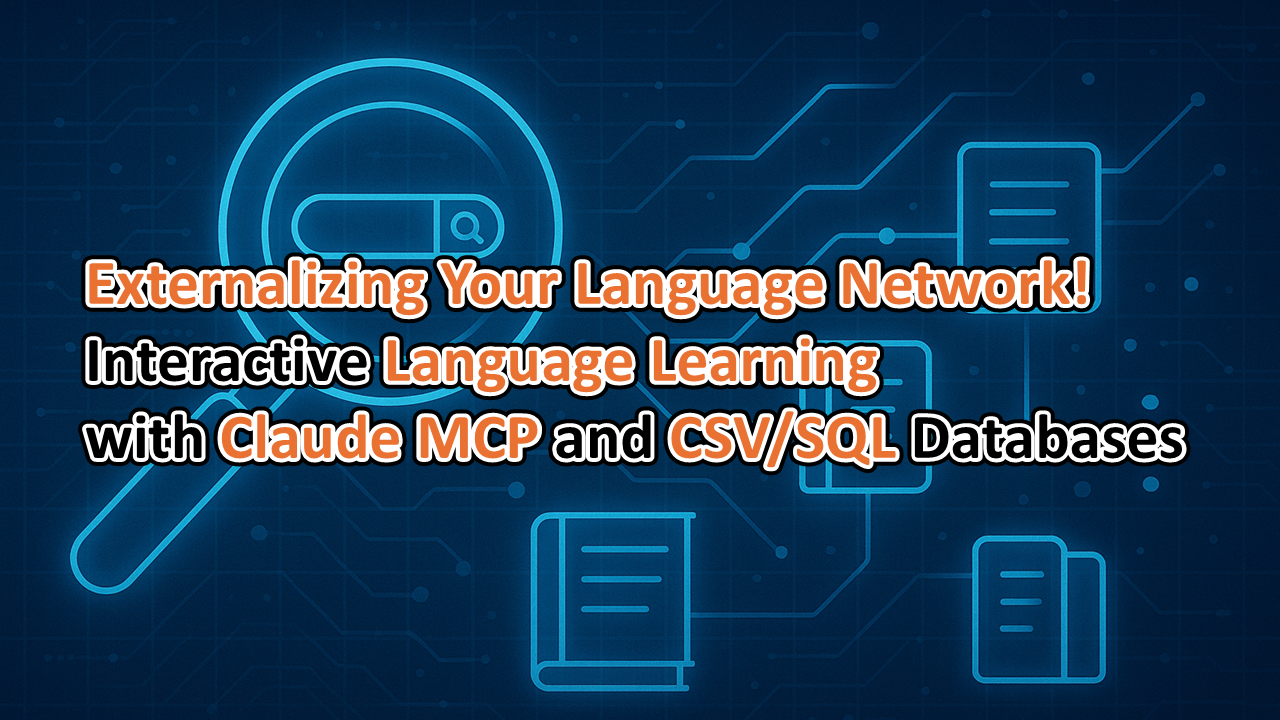


コメント